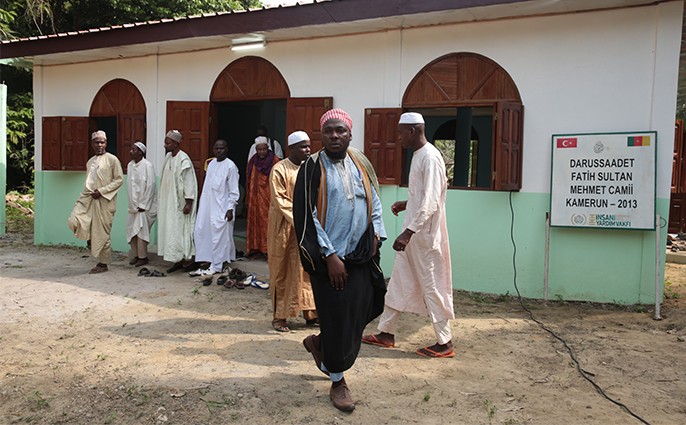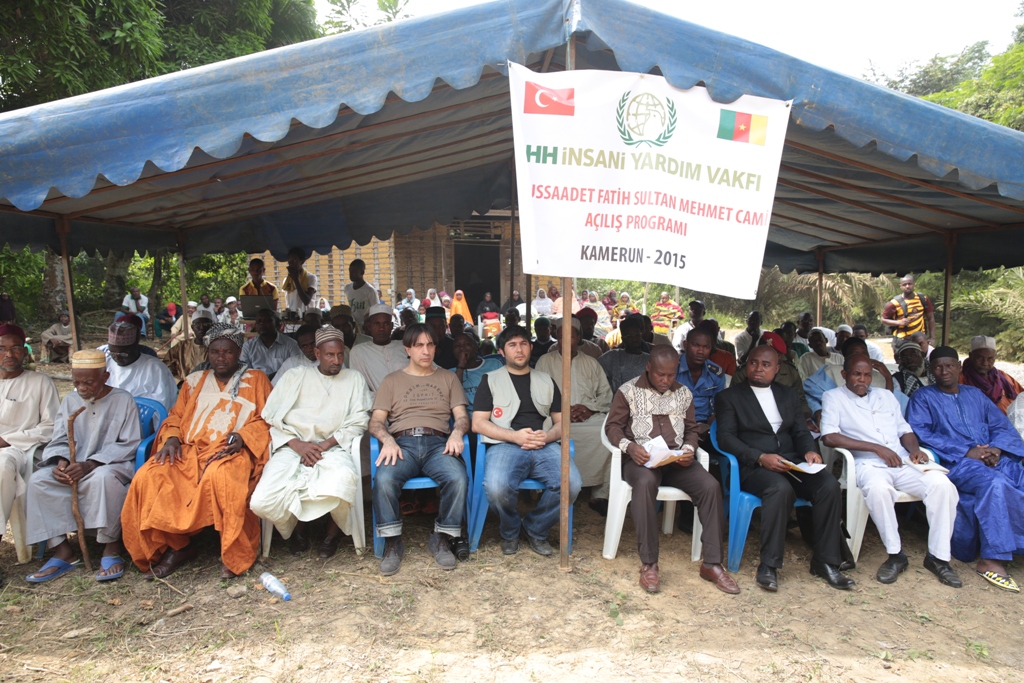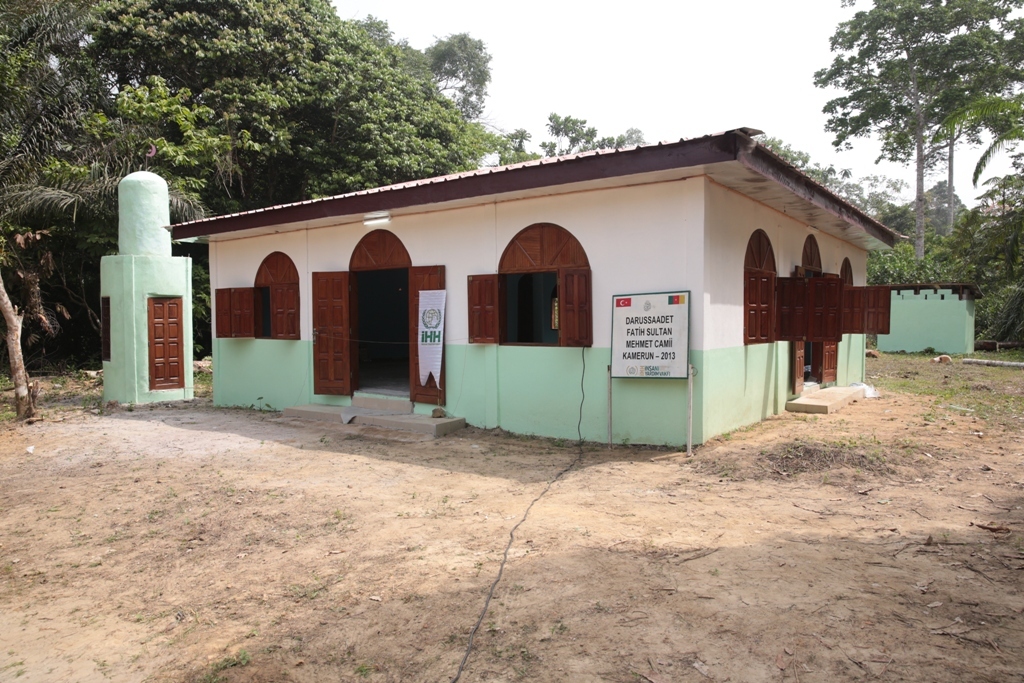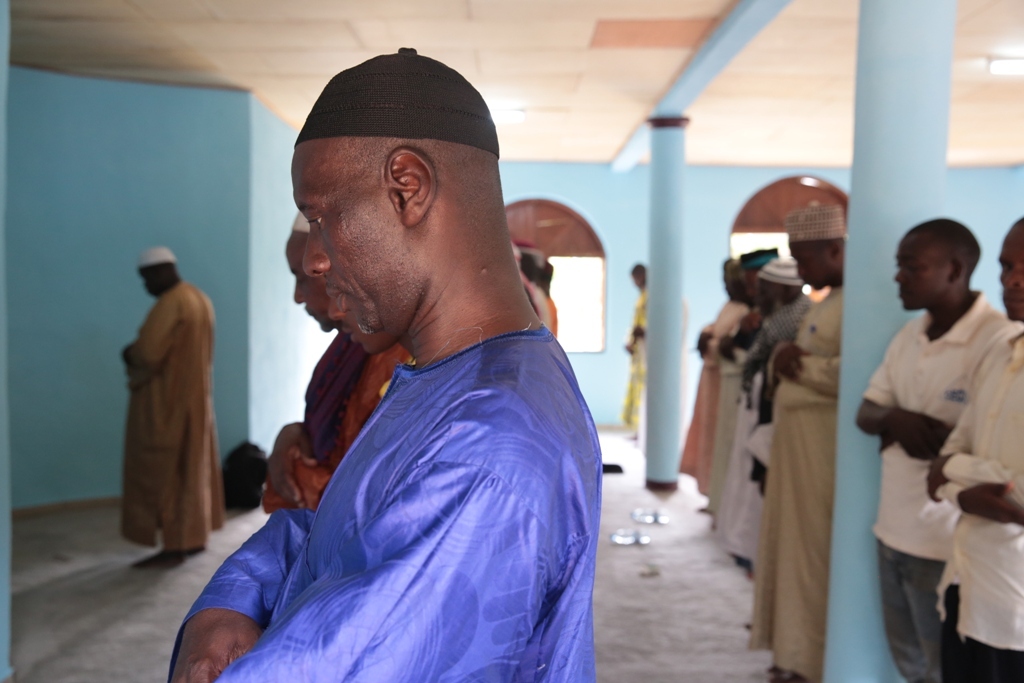
Dersaadet Fatih Sultan Mehmed Mosque, which was under construction since 2014 in Cameroon, has opened to worship for pygmies.
In early 2014, IHH Humanitarian Relief Foundation started the construction of Dersaadet Fatih Sultan Mehmed Mosque in Makore village of Kribi city 300 km. off Yaounde, Cameroon’s capital. The mosque has opened for the worshippers recently.
The mosque, which is established on a 100 square metres, features one minaret and has one ablution area and three toilets.
The opening ceremony of Dersaadet Fatih Sultan Mehmed Mosque was attended bythe official authorities, the Muslim community leader and imam of the region, Osman Atalay of IHH board of trustees, Yunus Satılmış, head of IHH Western Africa Unit, officials from HURDEC, IHH’s partner organization in Cameroon and the locals.

The ceremony started with the recital of the Quran followed by the speeches of Muslim community leader and imam of the region, governor of the region and deputy governors. The governor expressed his thanks to IHH and Turkey for this project and emphasized that these kind of activities should continue.
After the speeches were finished, the governor handed down the key of the mosque to the imam of the region and they jointly cut the ribbons. Hence, Dersaadet Fatih Sultan Mehmed Mosque opened to the worshippers with takbeers. Afterwards, the first congregational prayer for zuhr prayer was held. The refreshments and drinks were served following the prayers.
The mosque will serve as a place of worship for 60 Pygmy Muslims living in the region as well as a centre of dawah through sermons and advices.

Christian and Animist majority village
Cameroon’s Kribi is a tourist destination featuring a coastal line and wide forests with a population of 90.000.Makore village,where the mosque is established, is located in a forest land and has a population of 1.000. Although majority of the population is Christian or Animist 60 Muslim pygmies are living in the village.
Pygmies
Pygmies are regarded as the first inhabitants in Central Afria. They are largely living in forest lands of Papua New Guinea, Democratic Congo and Cameroon and make a living through hunting.They live in round huts made of tea trunks with a single door. While pygmy women deal run the errands of the hut and go fishing men go hunting.
Harun is the imam of the pygmy Muslims living in Makorevillage. He says the lives of pygmies have changed after they were introduced to Islam. Before they embraced Islam, they were living naked hunting wild animals but after Islam they were introduced to the civilised life, he notes. The number of pygmy Muslims, which was only 15-20 a few years ago, raised to 60 and it will even grow bigger with the opening of this new mosque, he hopes.
